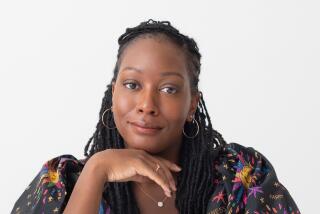Opinion: Debra Harrell and the mythology of bad black mothers
You may not yet know the name Debra Lynn Harrell, but youâve heard her story.
Itâs been recounted to you by scandalized parents at the grocery store and anchors on the evening news. Itâs been interspersed into speeches by politicians of every allegiance. The story is rather short â not much of a story, really â but it makes your lungs puff with disapproving air, as you realize it isnât the first time youâve come across this tale and it wonât be the last.
Harrell is a 46-year old black woman from North Augusta, S.C. She works at McDonaldâs, and for most of the summer, her 9-year old daughter would join her at work, using the restaurantâs free WiFi to play on her laptop.
After the familyâs home was robbed of the laptop, Harrell obliged her daughterâs request to drop her off at the nearby park, giving her a cellphone in case of emergency. It wasnât an ideal arrangement by any measure â in fact, it was potentially dangerous â but it seemed manageable.
On the daughterâs third day at the park, an adult discovered her to be unaccompanied and called the police. Harrell was neither warned nor counseled. She was arrested for âunlawful conduct toward a child.â She remains in jail today, facing felony charges and a possible 10-year jail sentence, while her daughter is in the custody of the department of social services.
In a âCrime Teamâ report on WRDW-TV, the anchor spoke with shock of Harrell ârepeatedly abandoning her 9-year-old at the park,â the tone and language designed to signal a crime of outright abuse.
After decades of debate among politicians, sociologists, clergy and countless others, it is a widely held belief among many Americans that poverty is rooted not principally in a lack of opportunity and a history of structural disadvantage, but rather in a collection of social âpathologiesâ ranging from laziness to an undisciplined, even dissolute lifestyle. The poor, youâve been told time and again, are moochers, sapping resources from the public wealth as they collect check after check from the unsuspecting hard-working rest-of-us.
And black women have been deemed particularly suspect,welfare queens who set a toxic example for their children. (Ronald Reagan campaigned for the presidency in 1976 using the theme of a âwelfare queenâ as a way of ginning up white outrage and conservative support.) Should they come upon hard times, should their fridges go barren or their kids go unmonitored, you mustnât worry. After all, it was their fault, not yours.
The solution, politicians explained, was welfare reform, which, as the lawâs title plainly stated, sought to encourage âpersonal responsibility.â The original bill even set aside $250 million for âchastity trainingâ for poor single mothers.
Like all mythology, that of the criminally bad black mother spread through storytelling â lurid tales told with bitter resentment. Havenât you heard the one about the jaywalking mother whose son was hit by a drunk driver? Surely you know all about the homeless mother who left her two children in the car during a job interview. And now thereâs the McDonaldâs mother who abandoned her daughter at the playground.
But what do these stories leave out? Our welfare system is designed to put everyone to work regardless of circumstance. Unfortunately, the low-wage jobs attainable for most mothers lead to a parental quagmire. Between low paychecks and inflexible work schedules, how is one to arrange for adequate child care? With no apparent options, the answer is often that they simply cannot.
Such women, itâs been repeated to you, are bad mothers who deserve to be punished, and increasingly weâre doing just that. Indeed, the mythology of bad black mothers was never just a part of our cultural folklore â itâs entrenched in our legal system.
Over the last three decades, the population of incarcerated women has grown by over 800%, and women of color have been locked up at disproportionately high rates. African American women are three times more likely than white women to be thrown in jail or prison.
The justice system doles out particularly harsh punishments for infractions that relate to motherhood. Although pregnant black and white women take drugs at similar rates, expecting black mothers are 10 times more likely to be reported to child welfare for drug use, according to the Drug Policy Alliance.
Mandatory minimum sentencing has slowly eliminated judicial discretion and exacerbated the racial disparities. In addition, most child maltreatment laws and definitions of neglect are very vague, leaving room for prejudice based on race, class and gender to creep in. One in nine black children have an incarcerated parent. Who stands to gain from this?
Income inequality in the U.S. has reached unprecedented levels, and as bad as things have become for white working-class mothers, things are only worse for women of color. But instead of addressing these problems, the wealthiest nation on Earth has maintained its complacency by wagging a finger of moralism at mothers like Debra Harrell. Itâs a story in desperate need of a new ending.
Follow @NoahRemnick for more news and opinions
More to Read
A cure for the common opinion
Get thought-provoking perspectives with our weekly newsletter.
You may occasionally receive promotional content from the Los Angeles Times.










